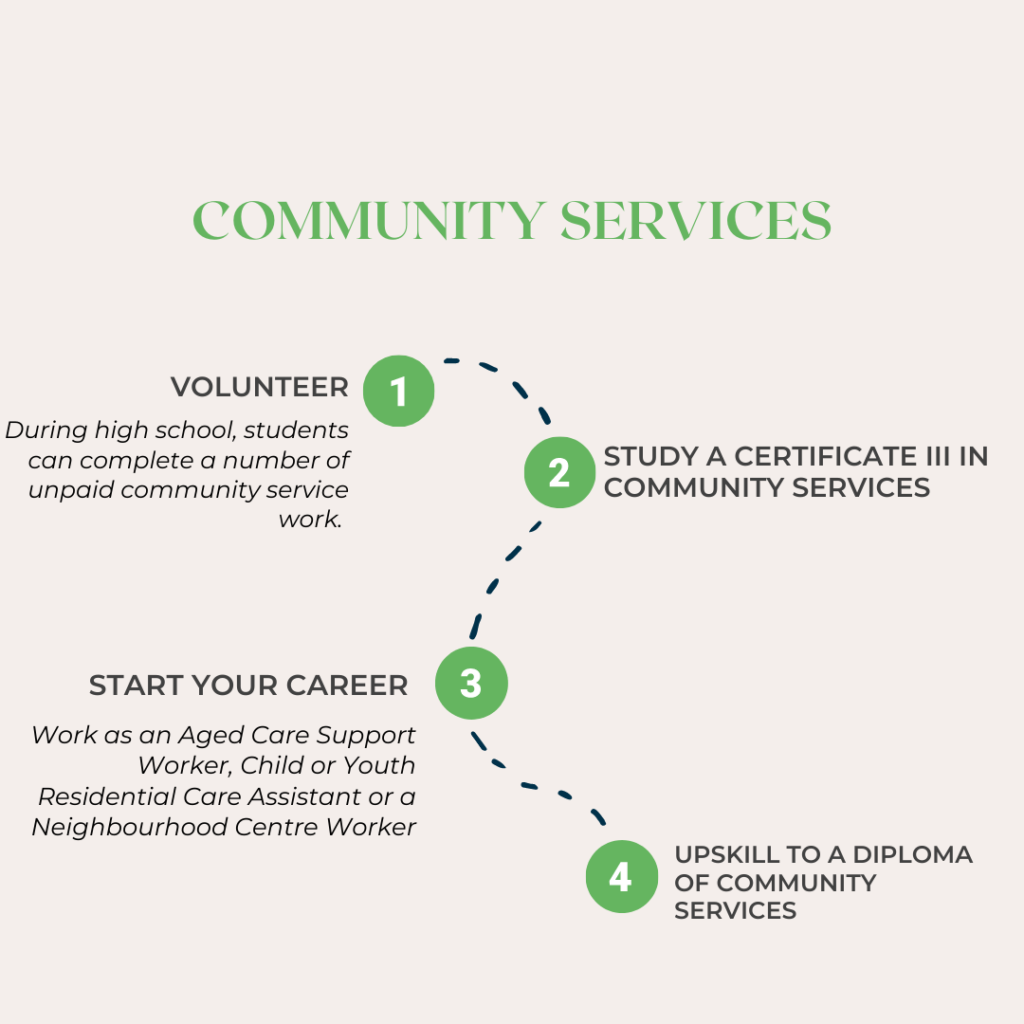
5 Reasons to Start Your Career in Community Services
The community services sector is a large industry and there are so many different opportunities available.
In Australia, community services is any job that involves directly giving back or helping your local community. Some of these positions are either volunteering or paid full-time roles.
You can work in sectors that help promote the welfare of communities, families, individuals, and groups.
Working in this sector means you will be dealing with vulnerable people who might be experiencing emotional or financial hardship such as discrimination, domestic violence, or even poverty.
Q: WHAT ARE SOME BENEFITS?
Here are just a few reasons why the community services sector is very rewarding and is an ideal industry to create a career.
- The community services sector has a diverse and multicultural working environment.
- There is plenty of job security within this role as it is only growing
- It has a very flexible working arrangement – 50% working part-time
Q: WHAT ARE SOME SKILLS THAT WOULD HELP ME?
Community Service workers have a passion for working and helping others. Here are some skills that you will need prior to working in this sector:
- Teamwork
- Leadership
- Time Management
- Passion
- Motivation
- Organised
- Writing and Communication
Q: HOW DO I START MY CAREER?

Your first step to starting your career in community services is volunteering during high school with an NGO or charity such as SES, RSPCA, or Green Peace.
After completing this, you can enrol in our Certificate III in Community Services. This qualification reflects the role of an entry-level worker who supports individuals through the provision of person-centered services.
At this level, work takes place under the direction of others, and supervision may be direct or indirect. Work may take place in a range of community services organisations.
After completing your Certificate III, you will be able to work in a number of different entry-level roles such as:
- Neighbourhood Centre
- Residential Support
- Disability Support
- Aged Care Support
Upskilling with a Diploma in Community Services will help you develop your passion for your chosen specialisation. The streams that you can study are:
- Generalist (Classroom-based)
- Alcohol and other drugs stream
- Disability
- Mental health
- Child and Youth stream
- Case Management Specialisation
Studying a Diploma of Community Services will help guide you into a more supervisory role such as Senior Youth Office, Social Welfare Worker, Welfare Worker, or Family Services Coordinator. Within this course, you will learn about managing work health and safety, working with diverse people, and developing workplace communication strategies.
This course also includes a minimum of 120 hours of supervised work placement.
Q: How much will I earn?
The average salary for a Support Worker is $55,092 per year in Australia. Your pay rate goes up as you progress in your career, to as high as $98,000 per year.
Q: What do Community Services workers do?

A community services worker provides services, support, activities, information, and referral for those in need of assistance. They play an important role in promoting and restoring social functioning by working with individuals, families, or communities.
- Case assessment and management: assessing the needs of clients.
- Monitoring and reporting the progress of clients.
- Providing personal care assistance.
- Client interaction and encourage them to become more independent.
- Link people with appropriate services, groups, and communities.
Community services workers may work in a variety of areas including aged care, disability services, child and family services, mental health, youth, justice, housing, and community developments. One of the key duties you will have is to plan and lead community group activities.
Sound like something you would be passionate about? Speak to one of our Course and Career Advisors today!
Speak to one of our Course and Career’s Advisors
if you have any further questions!
Pick a time: lunchtime, after the kids are in bed, anytime. We’ll call you back.



